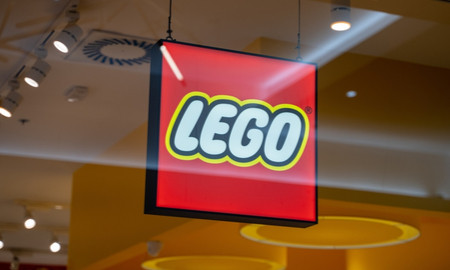Sign up for our free daily newsletter
YOUR PRIVACY - PLEASE READ CAREFULLY DATA PROTECTION STATEMENT
Below we explain how we will communicate with you. We set out how we use your data in our Privacy Policy.
Global City Media, and its associated brands will use the lawful basis of legitimate interests to use
the
contact details you have supplied to contact you regarding our publications, events, training,
reader
research, and other relevant information. We will always give you the option to opt out of our
marketing.
By clicking submit, you confirm that you understand and accept the Terms & Conditions and Privacy Policy
The Court of Justice of the European Union (CJEU) has confirmed the Lego toy brick’s status as a registered Community design in a ruling welcomed as “great news for design rights holders and functional products”.
In a decision handed down on 24 January, the General Court of the CJEU ruled that the iconic toy brick qualifies as a design, despite some aspects of its design being dictated by technical function.
In rejecting a challenge by rival German toy company Delta Sport Handelskontor to the protection the toy brick has enjoyed since 2010, the court said it benefited from Article 8(3) of the Community Design Regulation (CDR).
Article 8(3) has come to be known as ‘the Lego Exemption’. It caters for “the multiple assembly or connection of mutually interchangeable products within a modular system” allowing products that show “novelty” and “individual character” to be protected.
The judgment noted that a design can only be declared invalid “in the case where all of its characteristics are excluded from protection”. It added: “If at least one of its characteristics is protected, in particular due to the application of the exception provided for in Article 8(3) of that regulation, the design remains valid.”
A statement issued on behalf of the CJEU’s General Court said Delta Sport bore the burden of proof and had failed to provide evidence that the toy brick lacked the “novelty and individual character” that allowed it to “benefit from the exception protecting modular systems”.
Richard May, a partner in Osborne Clarke’s intellectual property team, described the decision as “great news for design rights holders and functional products”.
“It quite rightly sets a high bar for attacks based on technical function and demonstrates that, once registered, designs are difficult to invalidate,” he said.
The General Court was ruling on a decision in 2021 by the EU Intellectual Property Office (EUIPO) confirming the validity of the Lego brick’s registered Community design.
Delta Sport had initially succeeded in annulling the brick’s protection when, in 2019, the EUIPO considered all the features of appearance of the Lego brick as being solely dictated by its technical function thus making it ineligible for design protection.
However, in 2021, the EUIPO had found that it had not been appropriate to cancel the protection for the Lego brick since that brick benefited from a specific exception laid down in EU law.
May said that the court had made it clear that a design must be “100% functional to be invalidated” adding that the case emphasised that designers of functional products shouldn’t “automatically discard design registration”. He explained: “Provided the products incorporate some aesthetic features, that should be enough to provide robust registered protection.”
He added that the case was a good example of how challenging it can be to invalidate even banal designs, without novelty-destroying prior art.
Christoph Moeller, a partner at Mewburn Ellis, said the judgment also provided guidance on the difference between products which are intended to be “integrated in or connected to other products during assembly or retrofitting on the one hand”, and products that are intended to be continuously assembled and disassembled throughout their product life like Lego.
He added that the judgment emphasised that the burden of proof that a design lacks novelty and individual character lies with the applicant for a declaration of invalidity and not with the proprietor of the design right. He said compliance with the requirements of a Community design – that the design is novel and has individual character – “are presumed until proven otherwise”.
Email your news and story ideas to: [email protected]











